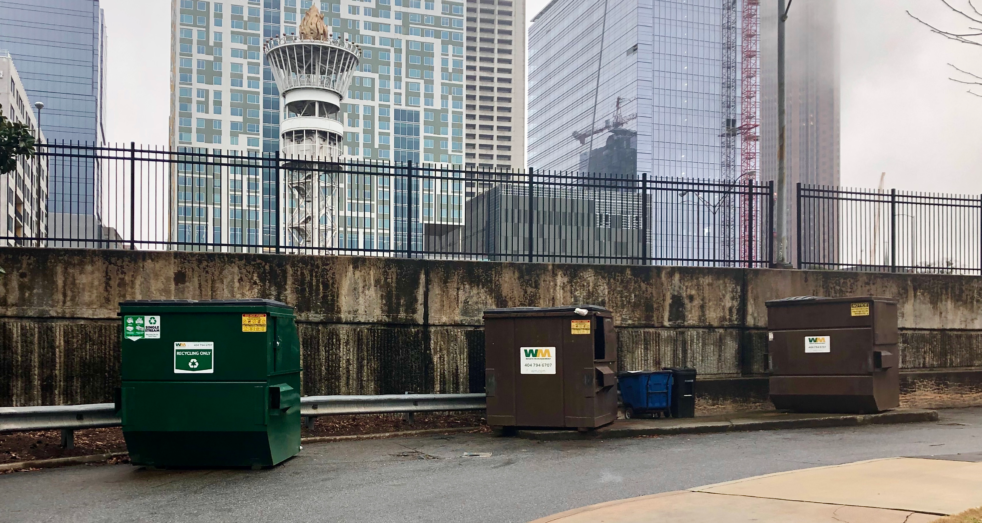Living in a college dorm brings newfound independence, freedom and responsibility, and as young people coming of age in the midst of a climate disaster, many college students feel a sense of responsibility to the environment and creating more sustainable practices.
While it may not solve climate change on its own, individual action plays an important role in demonstrating the value of protecting the environment. Recycling is one of the easiest and most impactful individual sustainability practices.
The best practices for recycling can be complex and change with every location you’re in, but Tech makes recycling easy with clear instructions on how recyclables should be handled in the dorms and across campus.
Follow these tips to make your dorm life more sustainable.
The campus community must be sure to differentiate trash from recyclables.
The recyclable materials accepted at on-campus receptacles are plastic bottles and containers, aluminum and steel cans and paper and cardboard goods.
Glass is also accepted but must be disposed of separately. Tech’s waste management system only accepts brown, green and clear bottles and jars.
Be mindful not to bag your recyclables. Plastic bags, like shopping bags and garbage bags, are not recyclable and any materials within them will be disposed of as trash. Leaving bottle caps on bottles is acceptable because the caps are too small to be processed by waste management individually.
While most other materials are trash or compost, some trickier to recycle materials such as electronic waste, plastic bags and styrofoam can find a home outside of the dorm dumpsters. Thanks to Tech’s network of recycling programs, most difficult-to-recycle items can be disposed of safely on campus. If you are looking for more information on recyclable materials, recycle.gatech.edu offers a guide of what materials can be recycled and where.
Another cardinal rule of recycling, no matter where you are, is to clean your recyclables before you deposit them.
“As a general rule of thumb, I tell people, if they put their recyclables in a bin, you should be able to reach in and not feel gross about it,” said Emma Brodzik, Zero Waste Project Manager of the Office of Solid Waste Management and Recycling.
“Things should be rinsed out and empty, but not necessarily scrubbed down and washed,” Brodzik said.
Brodzik also recommends keeping a separate storage receptacle for recyclables. Sorting recyclables prior to taking out the trash will save time and allow you to take out the trash less often. Reusable bags make a great recycling container because they are easy to transport and store in between uses.
The final step of the recycling process is depositing the waste. Tech has a recycling drop-off location on East campus, at the intersection of Sixth Street and Techwood Drive. The Greek Neighborhood has a recycling drop-off system as well. Most campus buildings have their own recycling bin.
Each residence hall has a corresponding recycling drop off. All residence halls except the North Avenue apartments use dumpster sites located outside the building, and some dorms share a dumpster site. North Avenue apartments use a trash chute system that includes recycling.
Dumpster sites have large brown dumpsters for trash, green dumpsters for accepted recyclable materials, a blue cart for glass and a black cart for compostable materials.
These various rules and regulations can be difficult to always follow correctly. When attempting sustainability initiatives such as recycling, it is easy to become doubtful of its effectiveness. Brodzik emphasized that proper recycling practices matter, especially in Georgia, where we have a significant market for recycled materials.
Our community’s continued dedication to building a safer and cleaner future can be seen across campus from the sustainable Kendeda Building to the recycling programs in dorms.
